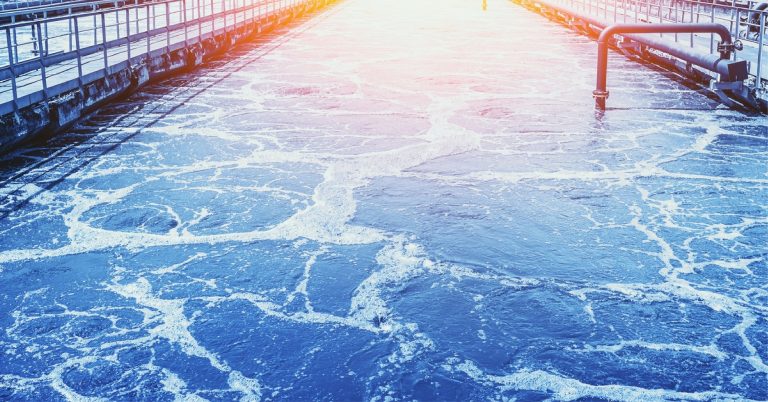Wastewater management is essential for environmental sustainability and public health. Efficient treatment and disposal can prevent pollution, conserve water, and protect ecosystems. In Nepal, the diverse landscape and growing population present unique challenges and opportunities in managing wastewater.
This blog explores the current state of wastewater management in Nepal, the challenges it faces, government policies, and future directions for improvement.
Understanding Wastewater Management
Wastewater is water that has been polluted by human activities. It comes in three main types: domestic, industrial, and agricultural. Domestic wastewater, from households, includes sewage and greywater. Industrial wastewater, from manufacturing, contains various pollutants. Agricultural wastewater, from farming, often contains fertilizers and pesticides.
Current State of Wastewater Management in Nepal
Wastewater Management in Nepal is still in the developmental stages. While major cities like Kathmandu and Pokhara have some wastewater treatment facilities, many areas still lack adequate systems. The existing infrastructure primarily consists of basic septic tanks and a few centralized treatment plants. Nepal generates a significant amount of wastewater, especially in urban areas, but the treatment capacity is limited. Consequently, only a fraction of the wastewater produced undergoes treatment before being discharged into rivers and lakes, posing a major environmental and public health risk.
Challenges in Wastewater Management in Nepal
- Inadequate Infrastructure and Outdated Technology: Nepal’s wastewater management infrastructure is often outdated and insufficient to handle the growing volume of wastewater. Many treatment plants operate below capacity due to technological limitations.
- Lack of Funding and Financial Constraints: Financial constraints hinder the development and maintenance of wastewater management facilities. Limited government budgets and reliance on foreign aid slow down progress.
- Insufficient Regulatory Framework and Enforcement: The regulatory framework for wastewater management in Nepal is weak. There is a lack of stringent regulations and enforcement mechanisms to ensure proper treatment and disposal of wastewater.
- Public Awareness and Community Involvement Issues: Public awareness about the importance of wastewater management is low. Community involvement is essential for successful implementation, but it is often lacking.
- Environmental and Health Impacts of Poor Wastewater Management: Inadequate wastewater management leads to water pollution, affecting aquatic ecosystems and human health. Contaminated water sources can cause diseases and negatively impact agriculture and fisheries.
Scope of Ion Exchange in Nepal
Ion Exchange, a pioneer in water and environmental solutions, has been at the forefront of addressing the operational challenges faced by wastewater treatment plants, including wastewater management in Nepal. Our solutions offer wide applications and pioneer innovations in water management by recycling wastewater and reducing its source. Our integrated systems focus on waste management through product recovery and waste minimization.
Our solutions cater to various industries, including power plants, fertilizers, electronics, electroplating, textiles, chemicals, food and beverage, pulp and paper, pharmaceuticals, and automobiles, ensuring optimal recovery and reuse of water and products.
Explore Ion Exchange’s Products
WASTEWATER SYSTEMS
Ion Exchange’s pioneering solutions encompass water management through wastewater recycling, source reduction, product recovery, and waste minimization. The treatment process, comprising primary, secondary, and tertiary stages, is tailored to the wastewater characteristics and desired effluent quality.
Our product range includes INDION® TADOX® (Advanced Photocatalytic Oxidation Process), High Rate Solid Contact Clarifiers, Anaerobic and Aerobic Systems, Membrane Bio Reactors, Packaged Sewage Treatment Plants, Packaged Waste Treatment Systems, Disinfection Systems, Odor Control Systems, Oil Screening, and Grease Removal Systems. Ion Exchange is committed to advancing wastewater management in Nepal and other regions, ensuring sustainable water solutions for a better future.
WATER RECYCLE
Ion Exchange delivers a powerful range of cutting-edge wastewater treatment technologies designed to tackle even the toughest water challenges. Their continuous media filters excel at efficiently removing solids, while their advanced oxidation systems leverage potent oxidants like ozone and hydrogen peroxide to break down stubborn organic pollutants. Complementing these are their state-of-the-art membrane systems, including ultrafiltration and reverse osmosis, which ensure superior separation and purification. This comprehensive approach guarantees high-quality water that is safe for discharge or ready for reuse, reflecting Ion Exchange’s commitment to sustainable water management.
ZERO LIQUID DISCHARGE (ZLD)
With over 60 years of proven expertise, Ion Exchange is revolutionizing wastewater management in Nepal. By incorporating advanced effluent treatment processes, innovative membrane technologies, and state-of-the-art evaporation methods, we maximize water recovery and achieve zero liquid discharge. Our solutions ensure the availability of water for process needs and low-end uses, drive savings through the recovery of valuable products for reuse and reduce water costs and freshwater requirements. Additionally, we guarantee compliance with pollution control board regulations, providing comprehensive and sustainable wastewater solutions.
Conclusion
Nepal has challenges in wastewater management, but there are many opportunities to improve. Key steps include upgrading infrastructure, using modern technologies, and improving regulations. Improving wastewater management in Nepal is crucial for environmental sustainability and public health.


